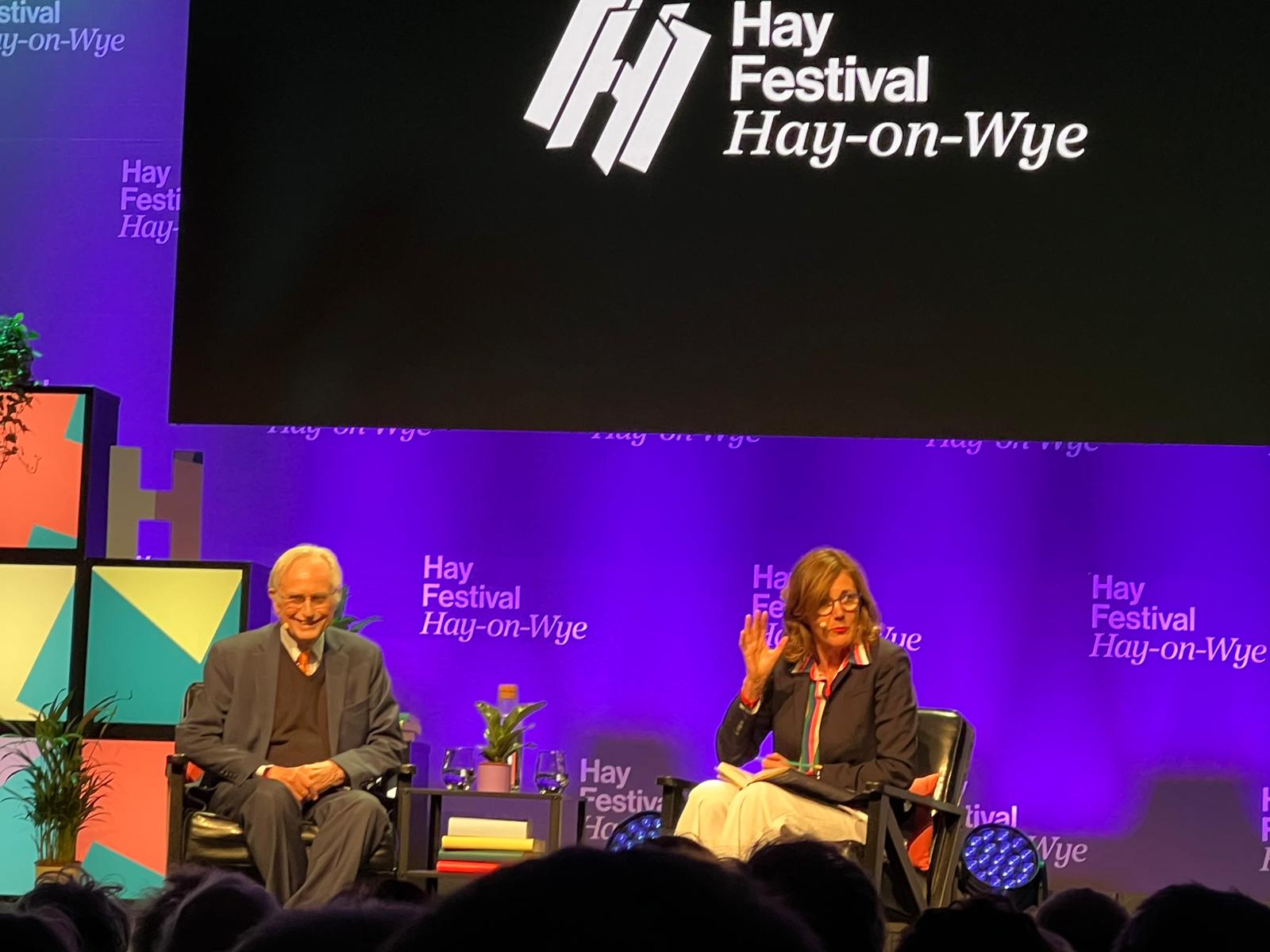Richard Dawkins has reflected on coining the term “meme”.
The word was first shared by the scientist in his 1972 bestselling book The Selfish Gene, where it referred to the self-replication of genes in evolutionary biology. Dawkins said memes could also refer to cultural entities that could be considered replicating by observers.
In 1993 it was used to refer to Internet memes by author Mike Godwin to explain the ways images and words proliferated online through message boards, emails and other internet forums. Since the advent of social media, particularly in the 2010s, memes have become a mainstay of 21st century culture.
In conversation with scientist and broadcaster, Vivienne Parry, at the Hay Festival on (29 May), Dawkins promoted his new book, The Genetic Book of the Dead, which he described as a form of “closure” on his work on evolution and biology.
“You invented the word meme, are you slightly horrified by the way it has come to populate social media?” asked Parry.
“It’s a good example of the spreading of a meme,” replied the author to laughter from the audience. “It’s the wrong one, but never mind.”
Memes have been at the centre of political debate and the battle for public opinion with Trump fans suggesting their opponents “can’t meme”, while some young people have turned to them for mental health support.

Regardless of the severity of the situation, for example, the absence of Kate Middleton Princess of Wales from public life, the missing Titan submersible or the election of the Pope in the Vatican’s conclave, viral memes have become a recurring part of online culture, prompting debate about their appropriateness.
Several people have found themselves gaining overnight fame and notoriety after becoming memes doing seemingly ordinary and everyday things such as the “Ermahgerd girl” and “Bad Luck Brian”.
Dawkins is famous for his views on atheism and religion, which he first explained in his international bestseller, The God Delusion, in 2006. He is also known for his debating style, having gone head-to-head with the likes of Jordan Peterson and John Lennox. However, he has described himself as a “cultural Christian”.



